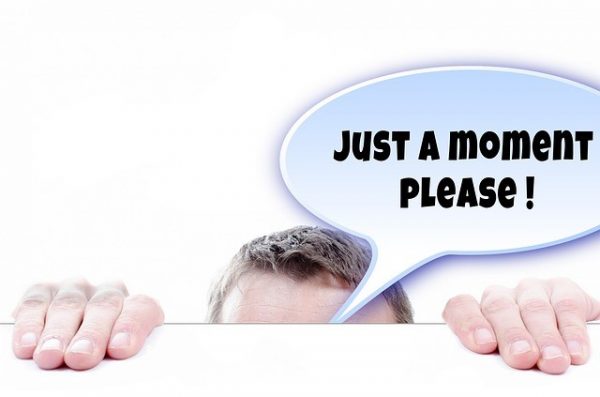We’ve all heard the adage of ‘patience is a virtue’ but the meaning can be a little confusing unless thought about and a productive definition is applied to it.
Patience is not passive acceptance
On the face of it, it seems to intimate that if you are patient eventually good things will happen to you. Wrong. If you hang around patiently waiting for something good to drop out of the sky and land in your lap, then it is never going to happen. However, it is true that patience can pay dividends.
If I had been told back in the year 2000 that my recovery would take over a decade to accomplish I don’t think even my patience would have lasted that long. However, not knowing and then working on developing my capacity to be patient allowed me to take each day, week, month and year as it came along and passed. Exercising it in this way helped teach me how to be patient whilst still accomplishing goals (in this case my recovery goals) which in turn meant I was able to keep going for the entire decade without too much angst creeping in.

We now live in a world of instant gratification and I notice a lack of patience in all sorts of scenarios. Unrealistic deadlines on projects being set, improbable profit forecasts being looked for, nonsensical time commitments being expected and the grasshopper like attention being given to things or situations. All of this is just leading to stress, collapse and failure with the occasional winner that everyone seems to be jealous of rather than congratulating them on their good fortune.
The reward of insight from patience
With patience comes insight. It gives you the time to see things for what they truly are. It gives you the time to adapt to changing circumstances. You learn to appreciate the results when they happen and can savour them even more, simply because you have been patient in achieving them.
Patience is hugely important in helping strengthen your resilience as it allows you to perform at a high level for an extended period of time. It works with motivation as it keeps you looking forward but noting the steps you are achieving as you do move forward.
Developing patience is difficult to explain other than just saying ‘have it, use it, do it’. The next time you are running along reaching for your goal don’t kill yourself trying to do it in the quickest, shortest time possible. Take it steadily, plan, act, enjoy the result and then repeat.
Think of it a bit like you might think about eating your absolute, most favourite cake. You have bought the cake and plan to treat yourself after dinner by savouring every single mouthful. You could gobble it down straight away, but you want to have the time to savour, relish, enjoy each and every delicious mouthful without any other distraction. The anticipation of it is almost as good as consuming it will be. You get on with the rest of your day taking the actions you had planned, always looking forward to the time you will get to eat your cake. You finish for the day, cook and eat your main meal still thinking about the time you can get to your cake. Finally, the time comes to settle down to eat your cake and relish every single morsel of it. And, ah, the sweetness of that moment makes all the problems from the day shrink away into insignificance. Patience really does let you have your cake and eat it!

